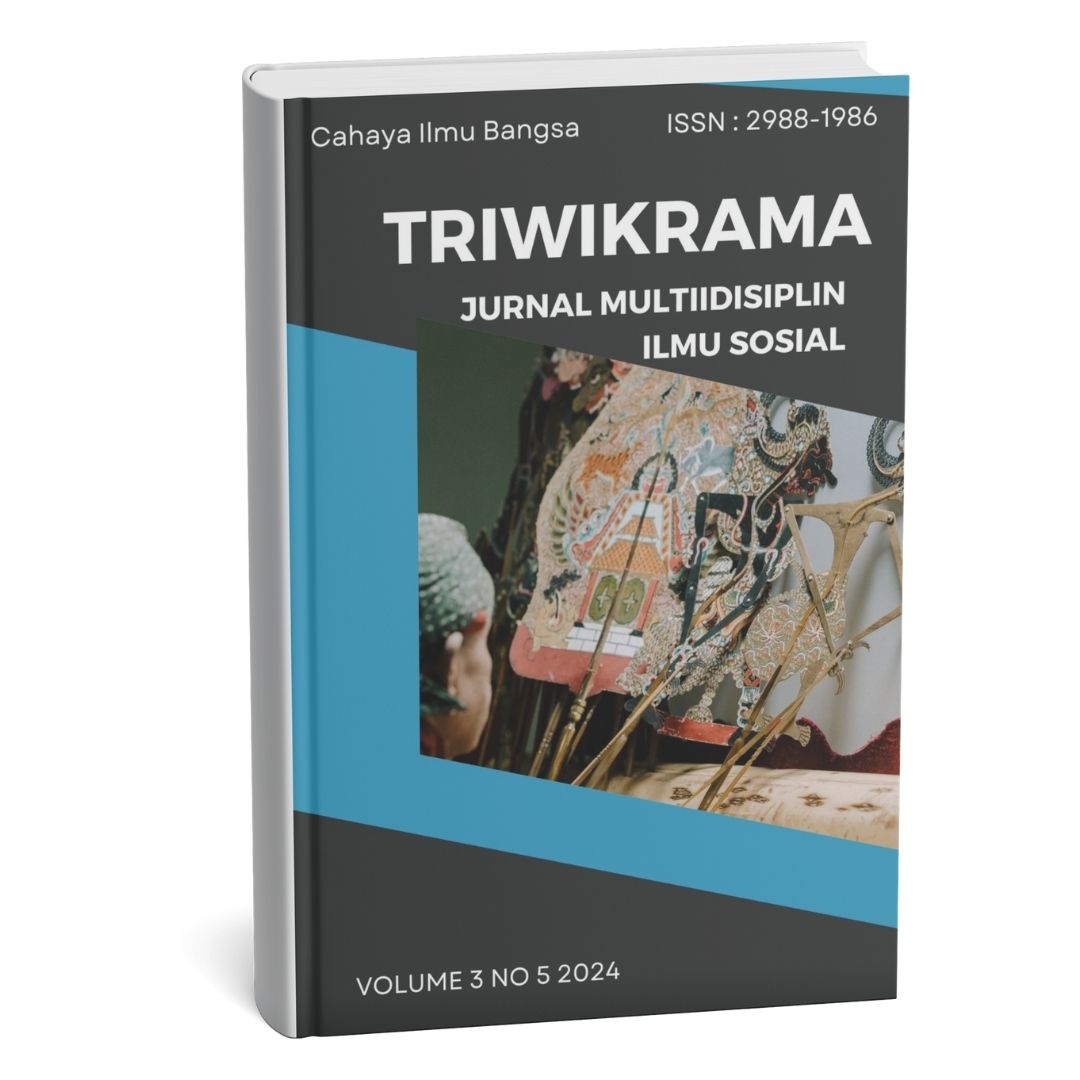TEOLOGI POLITIK: SEJARAH, KONTROVERSI, DAN RELEVANSINYA DI DUNIA KONTEMPORER
DOI:
https://doi.org/10.9963/y979z716Keywords:
teologi politik, sejarah pemikiran, kekuasaan dan agama, pluralisme, keadilan sosial, hak asasi manusia, political theology, history of ideas, religion and power, pluralism, social justice, human rightsAbstract
Teologi politik merupakan sebuah kerangka pemikiran yang membahas keterkaitan antara ajaran teologis dan praktik politik dalam pembentukan serta pengelolaan masyarakat. Konsep ini berkembang dari akar historis yang kuat dalam pemikiran para filsuf dan teolog Kristen seperti Santo Agustinus dan Thomas Aquinas, yang menempatkan tatanan ilahi sebagai landasan moral dan struktural bagi kehidupan politik. Di abad ke-20, teologi politik mendapatkan bentuk baru melalui pandangan Carl Schmitt, yang menyoroti keterkaitan antara kedaulatan dan konsep teologis, serta melalui Johannes Baptist Metz yang menekankan pentingnya ingatan akan penderitaan dalam praktik teologi yang politis dan transformatif. Artikel ini membahas empat aspek utama: sejarah perkembangan teologi politik, kontroversi dan kritik terhadap penerapannya, dinamika teologi politik dalam konteks global dan lokal, serta relevansinya terhadap isu-isu sosial kontemporer. Dalam konteks kontemporer, teologi politik menghadapi tantangan besar terkait penyalahgunaan agama dalam politik, munculnya teokrasi yang mengekang pluralisme, serta kegagalan dalam menjawab kebutuhan masyarakat multikultural dan demokratis. Namun demikian, dalam sejumlah konteks tertentu, teologi politik juga menjadi sumber inspirasi etis dalam perjuangan keadilan sosial dan hak asasi manusia. Dengan pendekatan historis-kritis dan analisis kontekstual, tulisan ini berupaya memberikan pemahaman yang lebih utuh terhadap potensi dan problematika teologi politik di era globalisasi dan kemajemukan. Artikel ini juga menggarisbawahi perlunya membangun kerangka teologi politik yang inklusif, dialogis, dan relevan dengan tantangan zaman.
Kata Kunci: teologi politik, sejarah pemikiran, kekuasaan dan agama, pluralisme, keadilan sosial, hak asasi manusia
Abstract
Political theology is a conceptual framework that explores the relationship between theological doctrines and political practices in shaping and governing society. It is rooted in a rich intellectual tradition, beginning with Christian thinkers such as Saint Augustine and Thomas Aquinas, who emphasized divine order as the moral and structural foundation of political life. In the 20th century, political theology underwent significant transformation through the ideas of Carl Schmitt—who highlighted the theological underpinnings of sovereignty—and Johannes Baptist Metz, who emphasized the remembrance of suffering as central to a transformative and politically engaged theology. This article discusses four main aspects: the historical development of political theology, its controversies and criticisms, its application in global and local contexts, and its relevance to contemporary social issues. In the modern era, political theology faces serious challenges, including the misuse of religion in politics, the rise of theocratic tendencies that threaten pluralism, and its failure in some cases to address the needs of multicultural and democratic societies. Nonetheless, in certain contexts, political theology has served as an ethical inspiration in the struggles for social justice and human rights. Through a historical-critical approach and contextual analysis, this paper aims to offer a comprehensive understanding of the potentials and problems of political theology in an age marked by globalization and diversity. It also highlights the need to develop an inclusive, dialogical, and contextually relevant model of political theology for our time..
Keywords: political theology, history of ideas, religion and power, pluralism, social justice, human rights
References
Afsaruddin, Asma. (2015) “Caliphate.” Encyclopaedia Britannica.
AP News. (2025, May 20). “Critics say Trump's religious agenda will benefit conservative Christians the most.” https://apnews.com/article/88a9ce8ac81a46fafb7e337366be8e9c
Anjum, O. (2024). Islamic Political Theology Copyright information. https://www.saet.ac.uk/Islam/IslamicPoliticalTheology
Brecht, M. (2022). “What's the Use of Exclusivism?” Theological Studies, 83(1),30–50.https://theologicalstudies.net/wp-content/uploads/2022/11/2-Brecht-Use-of-Exclusivism.pdf
Bugis, H. A., Riyanto, F. X. A., Jugan, W. (2024). Allah dalam Perspektif Thomas Aquinas.
Burgess, Glenn (1992). The Divine Right of Kings Reconsidered. English Historical Review 107(425): 837– 861.
Engineer, A. A. (2001). Islam and Liberation Theology: Essays on Liberative Elements in Islam. Sterling Publishers
Ferrero, M. (2012). “The rise and demise of theocracy”: Theory and some evidence. Public Choice, 156(3-4), 723–750. https://doi.org/10.1007/s11127-012-9924-1
Firmanto, A. D., Setiyaningtiyas, N., Romana, F. (2023). Johann Baptist Metz's Approach to the Church Secularity: A Theology of Connection
Fox, Jonathan, & Jori Breslawski (2023). State Support for Religion and Government Legitimacy in Christian-Majority Countries. American Political Science Review 117(4): 1395–1409 .
Grzymala-Busse, A. (2019) Beyond War and Contracts: The Medieval and Religious Roots of the European State. Available at: https://www.annualreviews.org/docserver/fulltext/polisci/23/1/annurev-polisci-050718-032628.pdf?expires=1733857513&id=id&accname=guest&checksum=0341E9E47658490FB90A8BA4FCAA75F8
Hidayat, K. (2005). Agama Masa Depan: Perspektif Filsafat Perennial. Jakarta: Paramadina
Hutahaean, H. (2021). Teologi Politik Gereja: Menemukan dan Memancarkan Tritugas Gereja dalam Pilkada dan Pilpres
Irawan, H. D., Sitanggang B. M. T., Samsi, S. N. A., Pratama M. A. (2024). Keadilan dan Religiusitas Menurut Santo Agustinus.
Johannes, B. (2016). Teologi Lokal dalam Konteks Global. Jurnal Teologi dan Masyarakat, 4(2), 100-115.
Kleden, P. B. (2013). Pandangan Johann Baptist Metz Tentang Politik Perdamaian Berbasis Compassio.
Maarif, A. S. (2009). Islam dalam Bingkai Keindonesiaan dan Kemanusiaan. Jakarta: Mizan.
Madjid, N. (1992). Islam, Doktrin dan Peradaban: Sebuah Telaah Kritis Tentang Masalah Keimanan, Kemanusiaan, dan Kemodernan. Jakarta: Paramadina.
Manurung, R. (2021). Teologi dan Keadilan Sosial: Peran Gereja dalam Merespons. Jurnal Teologi dan Kemanusiaan, 6(1), 75-90.
McQuaid, J.V. (2007) CNA. Available at: https://www.cna.org/archive/CNA_Files/pdf/d0016777.a2.pdf).
Vaishnaf, M. (2019) The BJP in power: Indian democracy and religious nationalism | Carnegie Endowment for international peace. Available at: https://carnegieendowment.org/research/2019/04/the-bjp-in-power-indian-democracy-and-religious-nationalism .
al-Sayyad, M.S. and Alwadai, S. (2021) Shiite political theology and the crisis of legitimacy in Iran. Available at: https://rasanah-iiis.org/english/wp-content/uploads/sites/2/2021/11/Shiite-Political-Theology-and-the-Crisis-of-Legitimacy-in-Iran.pdf .
Muvid, M. B. (2021). Pemikiran Thomas Aquinas: Relevansi Pendidikan Spiritual dan Moral Aquinas dengan Pendidikan Islam di Tengah Era Disrupsi.
Nassa, G. S. (2022). "TRINITAS DALAM PANDANGAN AGUSTINUS DARI HIPPO”: AUGUSTINE'S VIEW OF THE TRINITY.
Paipais, V. (2020). Political theology: A critical introduction. Contemporary Political Theory, 19(S3), 225–229. https://doi.org/10.1057/s41296-019-00325-z
Peter Manley Scott, W. T. C. (2008). The Blackwell Companion to Political Theology. Blackwell Publisher.
Rantung, D. A (2018). TEOLOGI POLITIK UNTUK KEADILAN: Respons Teologis Gereja di Tengah Menguatnya Politik Identitas.
Repository STTAA. Bab Dua: KONSEP TEOLOGI POLITIK JÜRGEN MOLTMANN.
Downloads
Published
Issue
Section
License

This work is licensed under a Creative Commons Attribution-NonCommercial-ShareAlike 4.0 International License.










